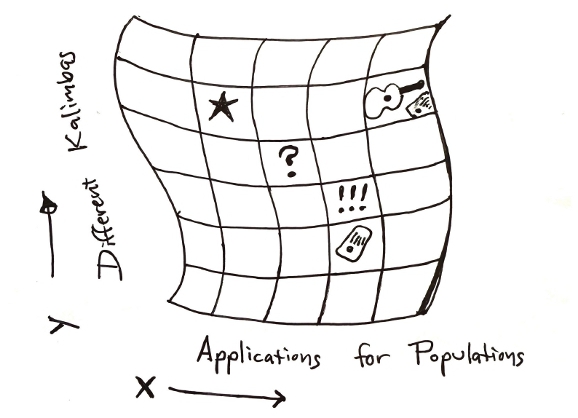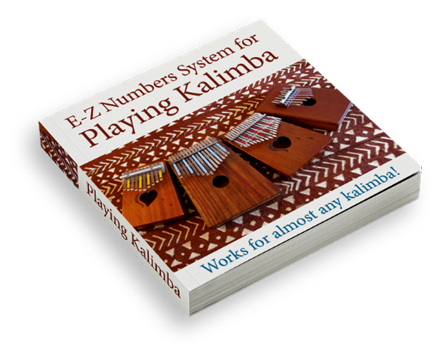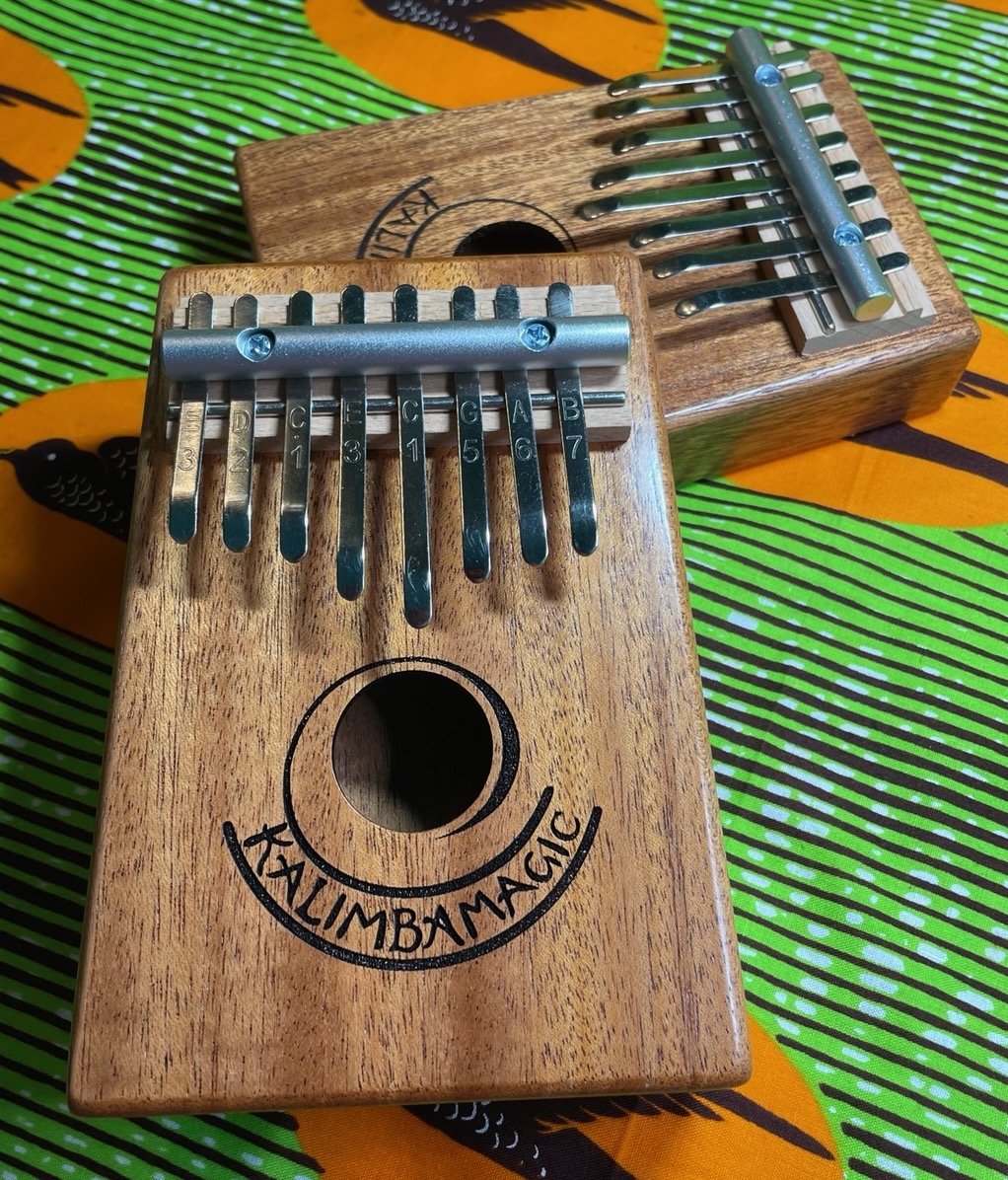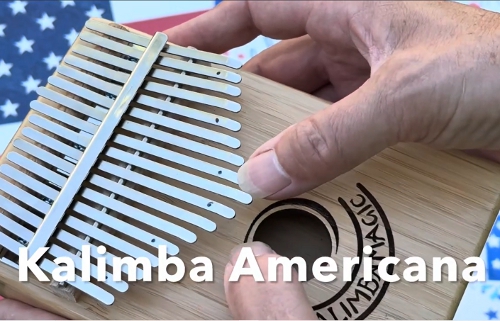On April 4-6 2025, I went back to a regional Music Therapy Conference to pitch the kalimba to Music Therapists, and I had a great time. You can get the 34 page PDF download for the two hour presentation here.
Before I get into it, be aware that Music Therapists are not just musicians who want to make a bit of money playing nice music for sick people. You might call that person a “therapeutic musician”, which is not any sort of official designation. Rather, Music Therapists receive extensive training, including a college degree, a 6 month internship with other practicing music therapists, and they need to pass a certification exam. A music therapist will have MT-BC after their name, indicating they are “board certified”. It is not quite as rigorous as training to be a psychological therapist… but it is very similar. Anyone can put out a sign for “The Music Therapist is IN”, but to become an actual “MT-BC” music therapist, one needs a lot of training and review. See the American Music Therapist Association (AMTA) for more information.
Music Therapy is a relatively new field. The field started to bloom in the 1950s – 1970s, and in the USA, Music Therapy is still growing at about 10% per year. There are so many people who could benefit from working with a music therapist, and the market is nowhere near saturation. When you go to an AMTA conference, the scene is dominated by students… and by women. A majority of music therapists are female. And they are young. MT cannot cure cancer, but it can make you feel better while you are getting treatment.
And almost anyone could benefit from a music therapist while they are in hospice. Something like 5% of people suffer from musical anhedonia, a neurological condition where they don’t derive any pleasure from music. The rest of us would probably love to have someone next to us at our death beds singing our favorite songs. And, having provided music for seven different people on their death beds, I can attest to the deeply meaningful experience of the provider. I do hope and assume that the recipients also had deeply meaningful experiences.
The growing Music Therapy field is doing its best to provide musical treatment plans for a wide variety of populations, not just hospice patients and cancer patients. Their goal is to make a real difference in people’s lives, starting from infancy and even before. (I played kalimba music for both of my sons in utero. It is a trip placing the kalimba against the expectant mother, playing the songs, and feeling the baby kick.)

I myself am not trained as a Music Therapist, but I love working with MT’s. They are great people who care. They are creative, intuitive, and fun. They are among the best people to jam with, and they are great folk to teach kalimba to. I can suggest different kalimbas and activities for various populations…but really, it is the Music Therapists that need to pick up the kalimbas and make treatment plans for their different populations.
As such, my main goal in doing this workshop teaching various kalimbas to music therapists was to have fun and channel joy. Based on the feedback I got from the participants, I succeeded in this goal! But hey, here are a few populations that MT’s work with, and some suggestions for kalimbas that will work with those populations:
Playing kalimba is a peaceful activity. For many people with anxiety, kalimba can be a calming activity. These MT clients should have a kalimba of their own, rather than rely on a kalimba in an MT session. A simple and intuitive kalimba is probably best for folks with anxiety. Start with the 10-Note Kalimba.
People of African heritage can experience pride and cultural connection through the kalimba. For children, try the student karimba. For adults, try the 17-Note African tuned karimba, or the F-15 Karimba. Oh, and people who are NOT of African heritage? It might benefit them to experience the joy and wonder of playing traditional African music on these instruments. It is certainly a path to respect for the ancient African minds that created these instruments and this music.
People with autism usually have extreme focus. It is their superpower. The kalimba can be a great object of this focus. (Hey, it worked for ME for 40 years of my life.) Start out with the simple kalimbas with 8 or 10 notes, and ramp up to more complicated kalimbas with more notes over the months and years of progress. Kalimba can literally be a life-long journey of joy and discovery.
Playing kalimba can be very relaxing. In fact, when playing at night, it can put me right to sleep! So if you are working with someone with insomnia, try the kalimba and see if it helps.
There are a great many elder musicians whose bodies are slowly failing them. Many instruments (piano, upright bass, guitar, trombone, accordion, bagpipes, etc) require significant physical effort to play, and eventually elders may not be able to play their instrument of choice. However, playing the kalimba is not nearly so physically demanding. High functioning musicians who are losing their physical abilities might enjoy playing the kalimba. Try a 17-Note kalimba so they can play lots of music!
One of the things I do is to play music for elders in care facilities. There are a great many old songs that you can play on your kalimba to help these elders have a good positive experience. Everyone seem to be amazed by the kalimba, and they are very appreciative. You will want to get a capable instrument to play a wide variety of music: a 15-Note or a 17-Note Kalimba.
And of course, one of the first examples I gave, of Music Therapy helping people in hospice, also works for kalimba. You can learn to play kalimba and sing. There are kalimba hymnals, classical music books for kalimba, Christmas carols for kalimba, and Americana songs for kalimba. Of course, you will have to spend some time learning these songs, but once you do, you will bring your kalimba along to hospice music gigs as an important part of your tool kit. And if you get serious, you may want kalimbas in two or three different keys to help support your singing.
To help you pay for your music therapy kalimbas, use the coupon code WRAMTA20 to get 20% off, expires May 31 2025.


Sign up for our newsletter and free resources with your email address:
We pinky promise not to spam you and to only send good stuff.
 Christmas in July 2025
Christmas in July 2025 Patriotic and American Music for Kalimba
Patriotic and American Music for Kalimba